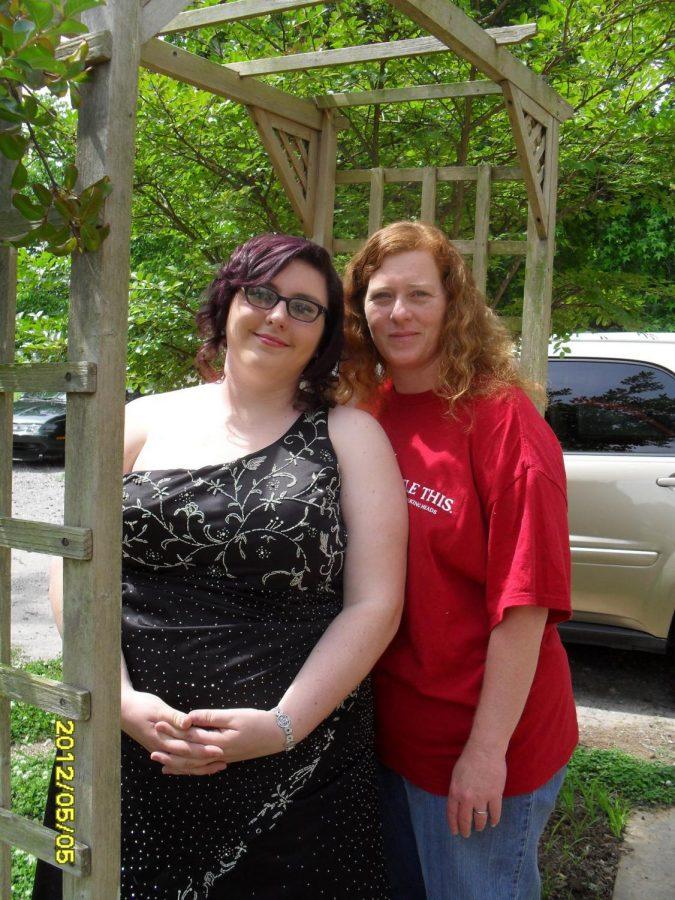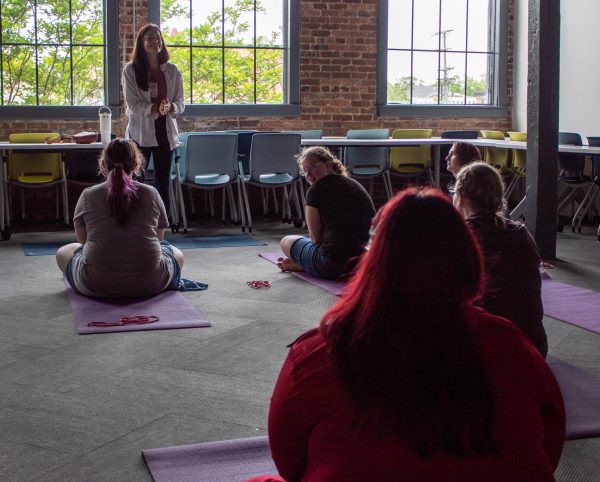Student explains effects of breast cancer on family
October 23, 2014
Not every breast cancer story is the same. My mother has endured a lot in her life, but cancer affected her more deeply than anything.
Many of the stereotypes surrounding the disease are not typical for every case. Mastectomies are not always needed. Not every patient loses his or her hair. Not every scar is noticeable. My mother, Missy, found this out the hard way.
When my mother went in for a routine mammogram May 1, 2012, the doctors told her they found something, so she would need to stay for an ultrasound. Dr. Joe Cannon told my mother he was sure it was cancer but to wait until results came back.
Doctors told her if it was cancer, it might have been caused by the hormone medication prescribed to her after she underwent a full hysterectomy five years earlier. But, they also said the odds for her to have developed cancer were very small.
Like Han Solo, she told them not to tell her the odds.
I remember the day my mother received the phone call confirming she had breast cancer. It was May 11, 2012. I remember her first questions because they were my own. Was she going to die? Was she going to be OK?
Cancer does not only affect the person who has it, but the family as well.
My senior year of high school did not start the way I envisioned it. I had plans to go visit colleges that summer and for my family to spend time together doing something fun.
Instead, the days I was not volunteering at the library, I spent with my mother at her cancer treatments. For more than a month, five days a week, I watched my mother suffer through radiation treatments at Clearview Cancer Institute in Huntsville. This was all because of a ductal 0.7-centimeter carcinoma tumor.
I remember my first thoughts as I sat in the waiting room. The people reminded me of the pictures I had seen of concentration camps — some were bald, some were frail-looking. But, they all wore the same hospital gown.
I remember her telling me she was embarrassed to say she had cancer. Those words hit me hard. Here was a woman who was notorious for speaking her mind on just about anything. She would go toe-to-toe with teachers, parents and even the Limestone County superintendent. My mother had always been outspoken. The fact she was afraid to talk about cancer hurt me more than her having it.
For her, talking about it is like reliving a bad memory. She feels if she talks about it, she has to admit it happened and that it could happen again. It is a fear she lives with every day.
Breast cancer is a vicious cancer for women. I am not saying other cancers are not as heinous, or that breast cancer does not affect men. Breast cancer takes away femininity — what it means to be a woman. When my mother’s friends would ask her about a scar or her surgery, she would pull her shirt up and show them. She would simply remark, “I have no dignity left.” She even hated going out in public.
For me, it was tough to see her like this.
To this day, my mother still has lingering issues from her battle with breast cancer, even as mild as her case was. The radiation treatments affected the nerve endings in her arm, causing her grip to falter. To this day, she still bears the marks nurses used to line up the radiation beams. She calls them her tattoos.
However, there are some positives. Sitting in the treatment center with the other cancer patients reminded my mother her world was not going to fall apart. She met people who were experiencing the same issues she was, people who told her it was going to be OK.
My mother’s breast cancer fight inspired me to become active in Relay for Life. I did not want other daughters to go through what my sister and I experienced.
My family also became closer through my mother’s battle. We called the Tuesday trips to treatments, Grandma Cindy Days. My grandmother would come from Cullman and take us out to lunch and go shopping after my mother was done with her treatments for the day. I am much closer to my mother than I have been in the past, which I am thankful for.
My mother was lucky to only have stage zero breast cancer, but not all patients can say they are that lucky.
Today, she has gone back to most of her normal routine. Her arm still bothers her, but there is nothing the doctors can do for her to fix it. She is currently taking online classes in pursuit of a criminal justice degree. When she is not too busy writing papers, she takes care of her three huskies, one of which my sister bought for her when she was declared cancer-free.
It still bothers my mother to talk about her experience with cancer in public. But, she is still alive, and that is honestly all I can ask for in the end.
Not everyone is that lucky.











